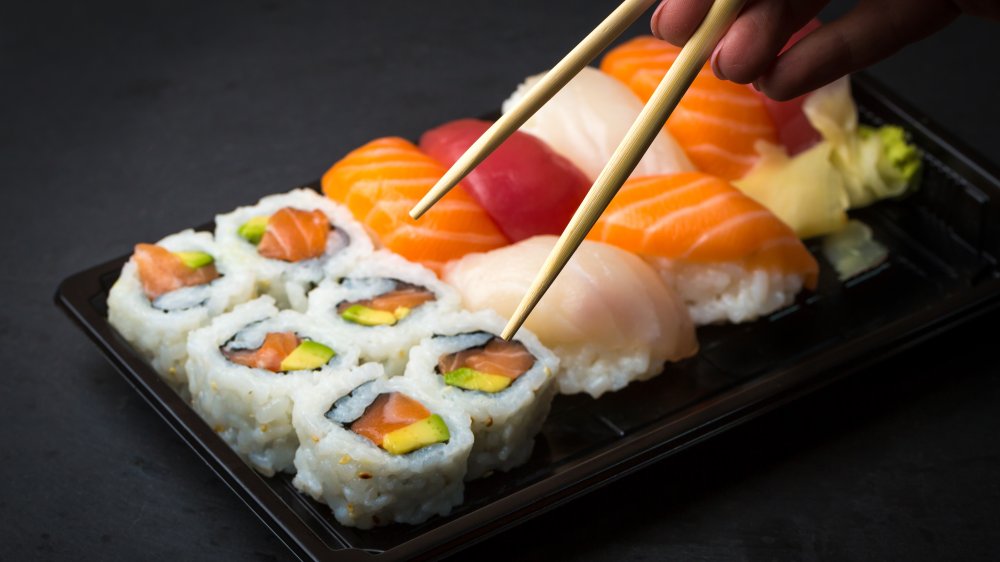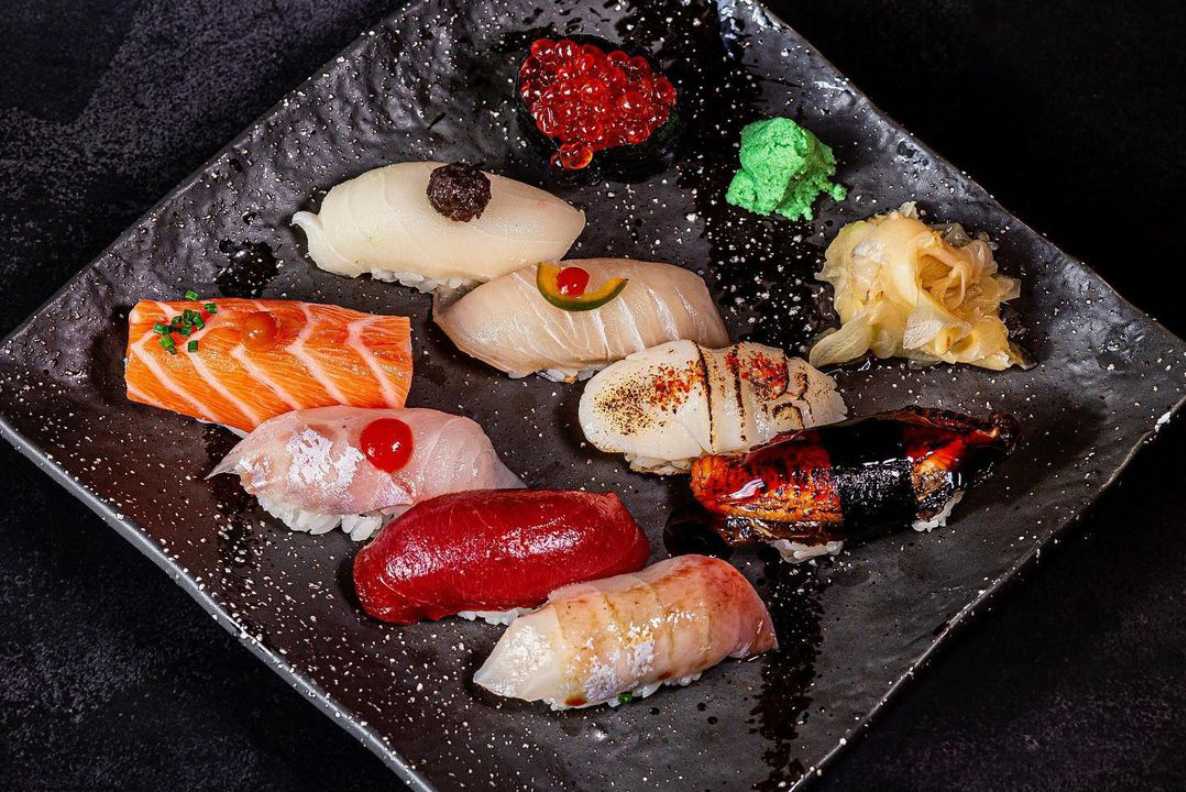Sushi costs a lot because it uses really good ingredients, like fresh fish and special rice. Making sushi is hard, so the chefs need a lot of training, which makes it more expensive. Also, sushi restaurants often have to pay a lot for their location.
Sometimes, certain fish can be hard to find or cost more at different times of the year, so that affects the price too. Sushi looks nice and is special to some cultures, which also adds to its cost.
Overall, sushi is pricier because of its top-notch ingredients, skilled chefs, expensive locations, and special meaning.
What Makes Sushi Expensive?

The combination of premium ingredients, skilled craftsmanship, meticulous preparation, and the dining experience contribute to the higher cost of sushi.
Quality of Ingredients
Freshness is super important in sushi because it makes the fish taste better and gives it the right texture. The fish used in sushi has to be really good quality, and it’s best if it’s caught on the same day it’s served. The fresher the fish, the more it costs because it has to be handled carefully and brought to the restaurant quickly. Some types of fish, like fatty tuna or sea urchin, are harder to find and have unique flavors, so they cost more.
Sushi rice, called shari or sumeshi, is a big deal too. It’s what holds everything together and makes sushi taste so good. The rice is cooked and mixed with rice vinegar, sugar, and salt to give it that special flavor. Good sushi rice is grown and processed carefully to make it sticky but still firm. The seaweed used to wrap sushi, called nori, also affects the taste and cost. Better quality nori is harvested and processed carefully to keep it fresh and tasty, which adds to the overall price of sushi.
Skill and Expertise
Becoming a sushi chef takes a lot of practice and learning from experienced chefs. They spend years training and working closely with sushi masters to perfect their skills. Sushi chefs need to be really good at using knives, making rice, and handling fish to make sushi that tastes great every time. Because it takes so much time and effort to become an expert sushi chef, they can ask for higher pay.
Making sushi is hard work, and it takes a lot of attention to detail. Sushi chefs have to be really careful with every step to get it just right, which means they spend a lot of time making each piece perfect. Because of this, sushi restaurants have to pay their chefs more, and that adds to the cost of sushi for customers.
Location and Rent
Sushi restaurants that are in really popular places, like busy downtown areas or fancy neighborhoods, have to deal with a lot of extra costs. These spots are great for attracting customers, but they also mean paying higher rent and dealing with more competition.
Because of this, sushi places in these areas often have to charge more for their food to make enough money to cover all their expenses and still make a profit.
Rent can be super expensive, especially in places where lots of people want to be, like big cities or places where tourists go. Sushi restaurants in these areas might struggle to keep up with the high rent prices, which means they have to charge more for their sushi to make ends meet.
Seasonality
The availability and cost of seafood change depending on the time of year and other factors like weather and fishing rules. Some fish, like tuna or salmon, are easier to find and cheaper during certain times of the year when there are more of them around. But when there aren’t as many or when there are rules limiting fishing, they can become rare and more expensive. Also, things like too much fishing or damage to fish habitats can make seafood harder to find and pricier.
This affects how much sushi costs. When there’s a lot of a certain fish, sushi restaurants can sell it for less, making sushi cheaper for customers. But when there’s not as much or when lots of people want it, the price goes up because it costs more for the restaurants to get the fish.
Sometimes sushi chefs will make special dishes with whatever seafood is in season, which can also change how much things cost depending on what’s available and how much it costs.
Presentation and Experience
The way sushi looks is really important when you’re eating it. Sushi chefs spend a lot of time making sure each piece looks as good as it tastes. They arrange it carefully on the plate and add extra touches like garnishes to make it look even nicer. This makes eating sushi more fun and memorable.
The whole experience of eating sushi is important too. Sushi restaurants want their customers to feel happy and relaxed while they’re there. They make sure the service is good and the staff know a lot about sushi.
Everything, from when you first walk in to when you finish eating, is planned out to make sure you have a great time. When the food is delicious, the service is friendly, and the atmosphere is nice, it makes the whole meal feel even better.
Cultural and Culinary Significance
Sushi is really important in Japan. It’s not just food there; it’s like an art. People have been making sushi for a long time, and it’s a big part of Japanese food culture. Sushi is all about getting the flavors, textures, and looks just right, which is really important in Japanese cooking.
In Japan, sushi is seen as a sign of how skilled someone is at making food, how welcoming they are, and how much they care about nature. This makes sushi a really special and meaningful part of Japanese life.
Because sushi is seen as something fancy and special, people are willing to pay more for it. It’s kind of like a treat for special occasions or celebrations.
People understand that making sushi takes a lot of skill and care, so they’re happy to pay extra for it. This means sushi restaurants can charge more for their food because people see it as something really special and worth it.
Imported Ingredients
Some essential ingredients for making sushi, such as specific kinds of fish, seaweed, and sauces, are not always readily available. Sushi restaurants must thus import them from other nations or locations.
This adds to the complexity and cost of the process since shipping goods from a distance necessitates careful consideration of quality, legal requirements, and logistical considerations.
The cost of bringing in these materials is additional. There are costs associated with exporting them, paying taxes upon their entry into the nation, and other expenses.
Customers will ultimately pay more for sushi as a result of these cumulative charges. Sushi restaurants must be extremely cautious about where they source their ingredients and ensure that they maintain quality even after importation in order to keep expenses down.
Sushi restaurants do their utmost to get the greatest ingredients to maintain the outstanding taste of their sushi, despite the fact that it’s difficult and expensive.
FAQs
Why is Japanese sushi so expensive?
Japanese sushi can be expensive due to the high-quality ingredients, skilled craftsmanship, and meticulous preparation involved.
How healthy is sushi?
Sushi can be a healthy option, as it often includes lean proteins, healthy fats, and vegetables, but it depends on the ingredients and preparation methods.
Why is sushi fine to eat?
Sushi is generally considered safe to eat when prepared properly, using fresh ingredients, and following food safety guidelines.
What is the king of sushi?
Tuna, particularly bluefin tuna, is often considered the king of sushi due to its rich flavor and prized cuts like toro.
Can you eat sushi everyday?
While sushi can be part of a balanced diet, eating it every day may not be advisable due to concerns about mercury levels in certain fish and potential overconsumption of rice and sodium from soy sauce.
Final Words
Sushi costs more for many reasons. First, the ingredients used, like fresh fish and special rice, are of very high quality. Second, making sushi requires a lot of skill and training for chefs, which makes it more expensive. Third, the location of sushi restaurants, especially in busy areas, adds to their costs.
Additionally, the seasonality of seafood, the way sushi looks, its cultural importance, and the need to import certain ingredients all contribute to its higher price. Overall, sushi may be pricey, but it’s because of these factors that make it delicious and special.



